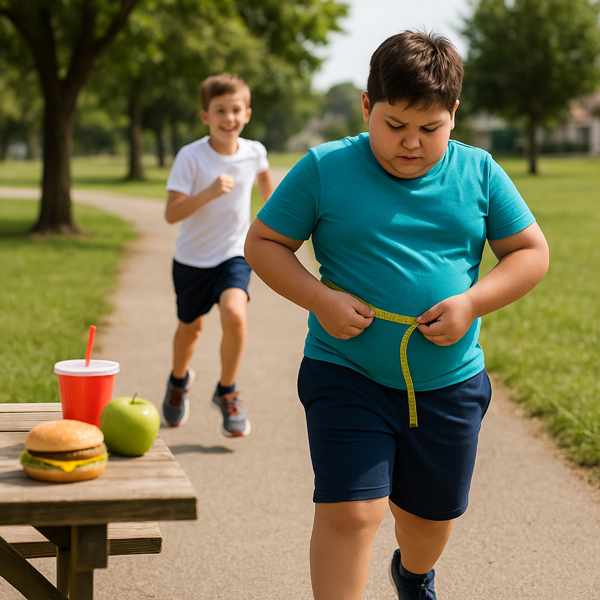
Childhood obesity is becoming a health crisis in many parts of the world.
Helping children achieve a healthy weight involves creating lifelong habits, not strict dieting or quick fixes.
Understanding Childhood Weight Gain
Children may gain weight due to a combination of factors, such as:
- Sedentary lifestyles
- High intake of sugar, fast food, and empty calories
- Emotional eating
- Affects hunger hormones and metabolism
Addressing the root causes helps create long-term solutions.
When to Be Concerned
Look for:
- Especially without growth spurts
- Could signal health or confidence issues
- Avoiding physical activities or group sports
- Secretive snacking, constant hunger, or skipping meals
Always consult a pediatrician before making major changes.
Simple Steps for Long-Term Results
Start with small, sustainable shifts like:
- Family meals with home-cooked food
- Make meals colorful and fun
- Switching soda for water or milk
- Dancing, biking, playing outdoors
Make changes together so your child feels supported, not singled out.
Making Movement Fun
Ideas include:
- Walking the dog as a family
- Encourages more active hobbies
- Joining community sports teams
- Family fitness challenges
The goal is consistency and enjoyment—not perfection.
Fostering Confidence
Kids need:
- Praise effort, not appearance
- A focus on health, not thinness
- Avoid shame and secrecy
- No matter their shape or size
When kids feel good emotionally, they’re more likely to make healthy choices.
Supporting Kids the Right Way
It may be time to talk to a specialist if:
- You’re not sure what’s safe or age-appropriate
- Your child expresses negative body image
- Medical issues may be involved
- You feel overwhelmed as a parent
Final Thoughts
Weight loss for kids is not about restriction—it’s about nurturing better habits.
Start small, stay kind, and visit this website celebrate progress, not perfection.